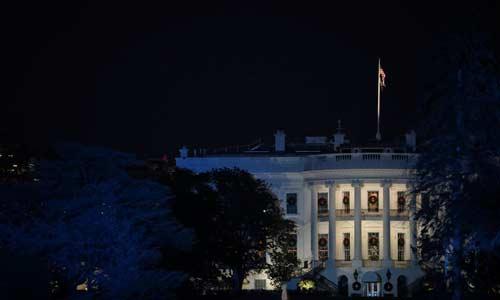The Chinese government is relatively non-transparent when compared to many other political institutions and organizations, but is becoming more open over time in response to evolving international expectations. There are no objective standards used to measure transparency, but compared to its own past practice the Chinese government has increased the amount and frequency of information it releases to the public, expanded social competition over ideas, and relaxed its controls over information. The Chinese Communist Party has pursued a development strategy requiring greater integration with the international economy that has obliged policy-makers to adopt more transparent practices and to develop an approach to information management that, while significantly different than those prevalent in most Western democracies, seems to be based on the premise that increased access to accurate information is generally beneficial to both individual Chinese citizens and the national interest. Increased acceptance of transparency in economic behavior has facilitated greater openness in other areas of government activity, including the development and implementation of military and security policy.
Western individuals who engage Chinese institutions have generally high expectations regarding access to information that are conditioned by their political values. Many complain that the pace of behavioral change in China is too slow and that current practice reflects greater skill at managing information but not a change of norms. Most Westerners perceive transparency as an intrinsic good and regard access to information, especially regarding the actions of public institutions and organizations, as an individual right. This is because both philosophically, and practically, they have an adversarial relationship with their public institutions, whose powers are checked by the individual's ability to examine and expose the actions of persons acting in a public capacity. Despite changes in Chinese attitudes towards international agreements, including commitments requiring the surrender of previously guarded information, this uniquely Western and essentially moral disposition towards information is not shared by many Chinese individuals or generally recognized as important to the proper functioning of Chinese institutions. As a consequence, relationships between Chinese and Western entities are often undermined by dysfunctional patterns of language and behavior that emerge from disparate assumptions about openness as a political value. Lack of shared values inhibits the formation of mutual trust and mutual respect, especially in high stakes negotiations.
Ann Florini, who directed the Carnegie Endowment's Project on Transparency defines transparency as "the opposite of secrecy". Her expansive understanding of the term reflects a trend in Western thinking that stigmatizes organizations and states that do not see increased transparency as "part and parcel" of "new standards about everything from human rights to non aggression to environmental protection".[1] In the narrower context of arms control, transparency has been defined by the UN as the "systematic provision of information under informal and formal agreements".[2] The purpose of such exchanges, as expressed in a 1991 UN General Assembly Resolution on transparency in armaments, is to "enhance confidence, ease tensions, strengthen regional and international peace and security and contribute to restraint in military production and the transfer of arms".[3] China has made significant efforts to accommodate this more modest definition of transparency, demonstrating a gradual institutionalized acceptance of the need to release information to international and domestic constituencies that mirrors earlier changes in their economic policy and practices.
Beginning in the late 1970s, reform-minded Chinese leaders acknowledged their relative economic weaknesses and understood that Chinese efforts to acquire foreign fiscal and technical inputs would require capitulations to the established world economic system. In order to attract capital, apply for financial assistance and obtain access to foreign markets they adjusted China's economic structure and adopted international economic practices, including requirements for regular and reliable reporting of previously guarded fiscal, demographic, geological and economic data. This new degree of openness to the outside was accompanied by disclosures to the Chinese public, which had been denied access to timely information about the state of their economy and the formulation of national economic policy. The sweeping changes in China's economic system that many now take for granted did not come easily, or swiftly. Adaptation to international requirements and integration with international institutions occurred incrementally over a period of twenty-five years amidst fierce internal political debate and significant social dislocation. Initial reluctance to accept greater economic transparency dissipated as economic planners and political leaders discovered that transparency could be used to China's competitive advantage.
The confrontational character of China's security relationships with some Western nations presents greater challenges than policymakers faced in the generally cooperative context of negotiations on economic integration. Nevertheless, even in the face of overt hostility to the continued existence of the Communist Party and their form of government, Chinese political leaders have demonstrated a willingness to make significant accommodations in the conduct of their international security policy. They joined the International Atomic Energy Association in 1984, acceded to the Non Proliferation Treaty in 1992, and joined the Zangger Committee in 1997. All of these commitments required the surrender of highly protected information to international authorities. Following the pattern established during economic reform, the Chinese government simultaneously sought to educate the public on a wide variety of military and security issues through a proliferation of journals, magazines and newspapers devoted to military subjects, restructured academic and professional programs in security studies, and the mass media, including a cable television channel operated by the People's Liberation Army that broadcasts regular programs on military doctrine and policy, including on-air debates and C-SPAN-like interviews where the audience can call in questions. Many of these conduits of information to ordinary citizens openly recognize China's significant military weaknesses and discuss in detail the strengths and capabilities of their adversaries' military technology.
The Union of Concerned Scientists, in the course of more than a decade of interaction with scores of Chinese scientists and other experts involved in the analysis and in some cases formation of Chinese arms control policy, has followed Chinese progress in developing the intellectual and institutional capacity to increase transparency through participation in international arms control negotiations. We have noticed a growing willingness to adopt positions and implement policies in support of international arms control treaties and agreements. Our experiences with a wide variety of individuals and institutions in China encouraged us to bring together a team of international arms control experts willing to discuss different concepts of transparency and consider ways in which the Chinese government could satisfy Western expectations for greater transparency in ways that are consistent with its national interests.
The project produced a set of draft working papers, but in many ways these papers are less important than the process of developing them, which revealed significant differences in Chinese approaches to one of the basic building blocks of most arms control regimes.
Chinese and western perspectives on transparency
During our initial meeting it became clear that Chinese and Western arms controllers emphasize different aspects of transparency, which, when examined carefully, indicate different normative approaches to the exchange of information and ideas between adversaries. Our Chinese colleagues attempted to identify general principles and establish a comprehensive framework for our discussions, while the other members of our international team were looking for modest practical measures that were narrowly defined and focused on specific problems. One participant compared the two points of view to the difference between Chinese and Western medicine. The more holistic Chinese approach was centered on the context of China's security dilemma; the problem of Taiwan, the continued U.S. military presence in East Asia, a U.S. nuclear posture that defined China as an adversary, and a national security doctrine that actively sought ways to defeat China militarily to avoid compromising imagined irreconcilable interests.
In constrast, the more particularistic orientation of Western participants left them frustrated with discussions of intractable political concerns that, in their view, a dialogue on transparency could not possibly resolve. They wanted to turn the group's attention away from politics and towards technology, with the goal of employing it in ways that could facilitate the trust that would be necessary to eventually confront the root political causes of the conflict.
Another participant described our initial dialogues with the gesture of one hand riding over the other, a motion repeated by several other Western participants when interviewed about their experience in the project. She felt the two sides were "talking past each other". Her description is reminiscent of Western accounts of early attempts at bilateral trade negotiations. American businesses stressed the need for binding agreements, detailed specifications and penalties for non-compliance. Chinese officials were more interested in developing human relationships, building mutual trust and establishing a stable interpersonal foundation for long-term cooperation. The gap in expectations initially led many American entrepreneurs to conclude their Chinese partners were xenophobic, manipulative, and indifferent about doing business with them, accusations that often appear in contemporary Western accounts of dialogues with Chinese policymakers over security issues. Theses widely published characterizations led many to believe that cooperation with Chinese entities was only possible if one were willing to surrender to what Richard H. Solomon, a celebrated expert on Chinese political culture, described as "a variety of stratagems designed to manipulate feelings of friendship, obligation, guilt, and dependence".[4]
This essential cultural difference in negotiation style and aims is a product of distinct and potentially conflicting notions of the social contract. Chinese individuals appear to be bound to each other by mutual obligations grounded in personal relationships, and traditional notions of political and social order are routinely described and understood using analogies to the family and to friends. Westerners, particularly Americans, seem to be bound to each other by pieces of paper containing mutually agreed upon language and procedures that define the principles and practices that organize their relationships. While recognizing the limits of this generalization, the different political traditions of China and the West are relevant to attempts to build trust and increase feelings of mutual security. From the Chinese point of view individuals who lack the integrity to honor their personal commitments can circumvent any system of formal regulation, while trust between partners obviates the need for detailed language codified in signed contracts. From the Western point of view, interpersonal trust is meaningless in the absence of written agreements effectively enforced by a commonly recognized authority with the power to compel parties to comply.
The Chinese preference for relationship-based obligation inclined Chinese participants in our project to place a premium on the transparency of intentions; that is, on statements that clarify a government's position on important security issues. China's staunch advocacy of the need for states to declare they will not be the first to use nuclear weapons, mentioned frequently during our initial dialogues, is an important expression of the salience of state intentions to Chinese arms controllers. While many Western analysts see no-first-use as strategically meaningless propaganda, it seems to be genuinely important to the Chinese as an expression of intent. Refusal to at least acknowledge the legitimacy of a conception of transparency that attaches significant weight to positive and negative statements indicating intent may be responsible for many of the difficulties in the bilateral relationship between China and theUnited States. The symbolic politics of the pro-Taiwan lobby, the publications of "China Threat" theorists, and the saber-rattling debates that routinely color US domestic politics cast significant doubt in Chinese minds about U.S. intentions, and obscure what most American policy makers see as sufficient reassurances of U.S. respect for China's core security concerns. U.S. intentions often seem either overtly hostile or unclear to the Chinese who, when looking at this broader context, claim that China is more transparent than the U.S. China appears, to itself, very clear about the defensive nature of its small nuclear arsenal, its absolute refusal to negotiate sovereign claims to Taiwan, and its willingness to temporarily set aside, in their own self-interest, ideological differences about the equity of the international economic system, which remain despite Western assumptions to the contrary.
In their paper for the workshop, Zhu Mingzhuan and Bo Yan spell out in somewhat unfamiliar logic how the Chinese emphasis on intentions has been applied in actual attempts to implement transparency measures. Their paper makes a distinction between what they call "defense doctrines" and "technical and operational information about national armament capabilities". They see transparency in security relations through the prism of realist theory, and proceed on the assumption that the purpose of such measures is to free state actors from the security dilemma created by lack of information about their adversary's capabilities and intentions. They assert that lack of information about intentions is the greater danger, and go on to demonstrate that since the establishment of the People's Republic in 1949 Chinese leaders have consistently made their intentions very clear. On that basis Western characterizations of Chinese foreign policy and international behavior as relatively non-transparent are inaccurate and unjustified. The authors concede a relative lack of transparency regarding China's "operational information and armament capabilities", but attempt to justify it by arguing that secrecy is essential to the security of weaker states, who must rely on ambiguity to create sufficient doubt in the minds of h3er rivals who would take unfair tactical advantage of information that detailed the specific nature and extent of their acknowledged relative weaknesses.
Their argument strains Western sensibilities, especially regarding the nature of realist theory and how it defines the rational behavior of states. Assumptions about international anarchy in Western realism are the logical consequence of the presumed inability of states to form and abide by contractual relations to the same degree that is possible for individuals and groups within states because of the ubiquity of organized violence and the absence of a political hierarchy that can enforce contractual obligations.[5]Zhu and Bo assume a rationality grounded in "self-restraint and self-limitations" that realists find implausible. While nations may, in the Chinese view, keep a good deal of information secret, lying, according to Zhu and Bo, destroys a state's reputation and thereby damages its national interests.
The authors' perspective on the importance of reputation as an instrument of national power is worth considering in light of the prevalence of Western arguments about the role of deception in traditional Chinese statecraft.[6] So is their distinction between capabilities and intent. Disguising one's capabilities may, in certain circumstances, be wise. Lying about one's intent, for Zhu and Bo, as well as for many traditional Chinese strategists, is associated with weak and incapable leadership. Throughout the history of Chinese political theory, including the revolutionary political theory of the modern era, the moral authority of the leadership is the foundation of its political power. It is not surprising therefore, that Zhu and Bo see transparency in "defense doctrines" as a key to international order, and this suggests that the Chinese government's constant reiteration of no-first-use and other general principles are more than mere propaganda.
It is important to distinguish the ability to accurately gauge an adversary's intent from the request for and acceptance of simple declarations. Transparency measures that grant access to an adversary's military personnel and installations, their political conferences and decision-making bodies, or their diplomatic and military academies offer excellent opportunities to assess whether an adversary's declarations are consistent with the psychology and behavior of the men and women charged with developing, analyzing, and implementing national policy. If, as Clausewitz argued, war is nothing but the continuation of policy with other means, having access to the social and intellectual institutions and processes where policy is conceived, discussed and transmitted can provide extremely useful information and meaningful assurances to an adversary. Chinese strategists may value this information more than their Western counterparts because their political traditions, and the theories that support them, admit a more complex view of human nature. Western attempts to turn politics into a science have perpetuated a comparatively simple image of human nature that compels Western strategists to discount or ignore the subjective aspects of political behavior. Like the Western arms controllers who participated in our project, their approach to transparency is more narrowly focused on what Zhu and Bo called "technical and operational information about national armament capabilities".
Technical perspectives on Chinese transparency
Most Western concerns about Chinese transparency are understandably focused on their capability to produce and deliver nuclear weapons. There is significantly less information about China's program in the public domain than there is about the programs of the other four declared nuclear weapons states that have acceded to the NPT. This is due, in part, to the greater general openness of the other countries' political systems, but it is also a consequence of the Chinese security establishment's decision to intentionally create doubt about their program and exploit uncertainty as a deterrent. While ambiguity may be an asset in China's strategic contest with the United States, it could prove to be a serious liability to their efforts to improve security relationships with their Asian neighbors. Recent developments on the Indian sub-continent and in North Korea confirm a frightening regional instability that could collapse decades of progress in nuclear arms control. Chinese policy will have a decisive impact on the behavior of other states, particularly on the non-nuclear weapons states who have well-developed latent potential built into their civilian nuclear programs.
Increases in the nuclear transparency of China's two principal adversaries, Russia and the United States, were largely a result of their participation in negotiations towards mutual arms reductions. Although the numbers in the recently completed Moscow Treaty are far too high to solicit Chinese participation in such a process, deep reductions, below the level of 1,000 warheads, could entice all of the declared nuclear weapons states into negotiations leading to an arms control regime requiring unprecedented levels of transparency.The first step along the path to deep reductions is to place a physical ceiling on the number of weapons that can be produced by banning continued production of fissile material. Unfortunately the road has been blocked by Chinese concerns related to the U.S.decision to withdraw from the ABM treaty and pursue a robust national missile defense system. China needs time to assess whether the relatively limited amount of fissile material it has produced is enough to maintain a credible deterrent, and in the absence of clear intentions from the US about the type of system it plans to deploy it is impossible for China to make a rational assessment of what size arsenal they need to survive the first strike US war planners refuse to foreswear.
In a talk on China's decision to sign the CTBT, Liu Gongliang, a physicist from the Institute for Applied Physics and Computational Mathematics (IAPCM) who advised China's negotiators, observed that international progress in arms control seems to be intimately related to the quality and availability of verification technologies. He used a history of test-ban negotiations to demonstrate that the dissemination of new technical capabilities shifts the political calculations of governments, which opt for participation at a point where the perceived benefits of voluntary disclosure outweigh the perceived costs of trying to preserve increasingly fragile secrets.
To the extent that Liu's observations reflect attitudes in the Chinese nuclear weapons community, China seems to be preparing itself to adapt to an increasingly transparent world. As China becomes more familiar with both the processes of international arms control negotiations and the technologies that can be applied in verification regimes, initial reservations seem to be diminishing. Chinese policymakers are recognizing that transparency is a neutral phenomenon, and not the political and diplomatic tool of h3er adversaries it seemed to be when they first entered the collective security arena. In the future Chinese strategists will most likely begin to see transparency as a national security asset that can help clarify doubts about the intentions of their adversaries. General Pan Zhenqiang, who literally wrote the book on arms control for this generation of Chinese analysts, characterizes it as an integral part of a military and diplomatic struggle that has existed ever since nations emerged as a form of social organization. For Pan, national attitudes towards arms control and the policies nations pursue emerge solely as a consequence of perceived national interests. [7]
Transparency & the future of Chinese arms control policy
In order to understand the future direction of Chinese arms control policy Western observers should develop a better appreciation of China's national interests as they are perceived and articulated by the individuals responsible for protecting them, rather than relying on calculations that emerge from great power theories of international relations, speculative interpretations of Chinese history and philosophy, or conjectures about factional struggles in the Chinese Communist Party. While China's form of government prohibits direct observation of their internal debates, there are meaningful opportunities to interact with Chinese analysts who play a role in their government's deliberations. By listening carefully to their concerns, we can begin to appreciate how Chinese policymakers define their security needs. China may, as Zhu Mingquan and Bo Yan argue, be more transparent than foreign observers realize.
The Union of Concerned Scientists is especially grateful to the Ford and MacArthur Foundations for supporting this effort to engage our Chinese colleagues in a discussion of transparency. Our dialogue produced a series of investigations that indicate a clear willingness to engage the international community in developing and implementing transparency measures in so far as they are able to strengthen Chinese security. Our experience in this project suggests that in order to advance the arms control agenda in China, and heighten the role of arms control and disarmament in Chinese security policy, interlocutors across the negotiating table should give greater salience to China's publicly stated interests, especially in making the intentions of their adversaries more transparent.
While the Chinese government may not share in the widely held perception of transparency as an intrinsic good, or believe transparency is essential to the proper functioning of government institutions, including international institutions, their growing appreciation of the value of arms control and disarmament as a vehicle for advancing Chinese national interests holds significant promise for the future of international arms control negotiations, including increased transparency.
[1] Ann Florini, "The End of Secrecy," Foreign Policy 111 (Summer, 1998)
[2] Center for Disarmament Affairs, United Nations Disarmament Yearbook, Volume 17, 1992
[3]A/RES/46/36 L, 65th plenary meeting, 6 December 1991, General and Complete Disarmament: Transparency in Armaments
[4] Richard H. Solomon, "China: Friendship and Obligation in Chinese Negotiating Styles" in National Negotiating Styles, Foreign Service Institute, 1987. The quote and reference are taken from Jim Mann, Beijing Jeep: The Short Unhappy Romance of American Business in China, (New York: Simon and Schuster, 1989) p. 73. Mann's essay on American frustrations with the Chinese way of doing business summarizes the profoundly negative perceptions of Chinese held by many US business executives. A decade later Mann, a foreign policy journalist for the Los Angeles Times, grafts his synopsis of their experiences onto his history of US-Chinese Foreign Relations, arguing that American diplomats have been successfully manipulated for two decades by deceptive Chinese counterparts who play upon their personal relationships to wrest important concessions in their strategic contest with the US for domination in East Asia. Jim Mann, About Face: A History of America's Curious Relationship with China, (New York: Vintage Books, 2000).
[5] Hans J. Morgethau, Politics Among Nations, Sixth Edition, (New York: Mcgraw-Hill, 1985) p.52.
[6] Mark Stokes, citing Sun Zi's Art of War, argues that the use of disinformation and deception is a "core competency" of the Chinese military mind that could be greatly augmented by the application of the powerful new information technologies that the current leadership is placing at the center of their modernization efforts. His research and analysis, increasingly influential in many circles in Washington, has raised doubts about the efficacy of pursuing transparency and confidence building measures with such a uniquely inscrutable adversary. Mark A Stokes, China's Strategic Modernization: Implications for the United States, (Carlise PA: Strategic Studies Institute, US Army War College, September, 1999).
[7] Pan Zhenqiang, Guoji Caijun yu Junbei Kongzhi, Guofang Daxue Chubanshe, 1996 p. 1-9.



